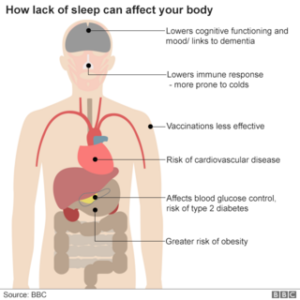Sharp rise in vaping among young adult non-smokers
A million adults have started vaping despite never having been regular smokers, scientists estimate.

 Getty Images
Getty ImagesThe number of adults in England to have started vaping despite never having been regular smokers has reached one million, scientists estimate.
This is a sharp increase on 2020, with disposable vapes having been available since 2021.
The rise is driven mostly by young adults – with about one out of every seven 18-24-year-olds who never regularly smoked now using e-cigarettes.
While some may have benefited by taking up vapes instead of traditional cigarettes – the trend could be worrying, experts say.
‘Less harmful’
Lead researcher, Dr Sarah Jackson, at University College London (UCL), said the public-health impact of the “substantial rise” in vaping among people who have never regularly smoked depended on what they would otherwise be doing.
“It is likely that some would have smoked if vaping were not an available option,” she said.
“In this case, vaping is clearly less harmful.
“However, for those who would not have gone on to smoke, vaping regularly over a sustained period poses more risk than not vaping.”
Researchers looked at surveys of about 150,000 adults in England between 2016 and 2024.
Respondents agreeing with the statement: “I have never been a smoker – ie smoked for a year or more,” were counted as “never regular smokers”.
And between 2016 and 2020, only 0.5% of these vaped.
But by April 2024, this had risen to 3.5%, with more than half aged between 18 and 24.
Over the last few years, these “never regular smokers” who took up vapes tended to be younger, more were women, and more were drinking at increasing levels, than in the past, researchers say.
The study, published in the journal Lancet Public Health journal and funded by charity Cancer Research UK, also found overall vaping figures among adults were levelling off.
Senior researcher, Prof Jamie Brown, at UCL, said: “These findings are a reminder that action is required to try to minimise vaping among young people who have never previously smoked.
“However, a balancing act is required to avoid deterring smokers from using e-cigarettes to quit.”
Current government plans to ban disposable vapes were unlikely to be the solution, Prof Brown suggested, as popular brands had already launched reusable products that looked and costed almost the same.
“A sensible next step would be to introduce stricter regulation around product appearance, packaging and marketing,” he added
Hazel Cheeseman, chief executive of campaign group Action on Smoking and Health (Ash) said the findings could be a cause for concern and suggested focusing on reducing the appeal of vapes would be the best way to limit the use of vapes in non-smokers.
“The aggressive marketing of products to young people means the government urgently needs to bring back the Tobacco and Vapes Bill, to regulate vape flavours, marketing and branding,” she said.
Peter Hajek, professor of clinical psychology, at Queen Mary University of London, said: “The just-released figures from the Office for National Statistics show that UK smoking prevalence is under 12%, an all-time low.
“If much less risky alternatives are allowed to continue to compete with cigarettes, smoking – and heart disease, lung disease and cancers that it causes – will continue to decline as well.
“The UK and USA, which allow vaping, have seen significantly faster declines in cigarette sales and in smoking among young and low-income people than Australia, which bans vaping. “








